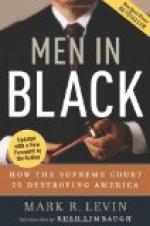A wonderful thing the prologue may be in its restraint and picturesque vividness, and, not least, in its clarity. Confused business dealings may be described so that important sums, figures, and dates will be remembered and recognized when they appear again in the evidence. Counsel, for the time, occupies the center of the stage; his course is in his hands to make or mar. He reaches the end of his speech, bows, and the first witness is called.
Before the testimony begins the judge looks at the defendant’s counsel and asks him whether he wishes to state his defense. There is a different practice in this regard in different courts. Some insist that the defendant ought to tell at once what his side is about, others that the defendant should wait until the plaintiff is through all his evidence and has rested; then at the beginning of the defendant’s case the defendant’s lawyer opens and makes his introduction.
The difference between these two manners of proceeding is so essential that it may be explained. On the one hand the lawyer feels that he should not be compelled to give away what he is going to do, how he proposes to meet the attack, whether he will lie in ambush and snipe the plaintiff as he comes on or intrench behind a rampart and meet him with the full force of his battery of evidence. He may be planning to make a sudden sally after the plaintiff has shot his arrows and exhausted all his ammunition. The lawyer feels if he tells his plan of campaign he loses the advantage of generalship.
Suppose a simple case: The plaintiff is suing on a long account for a bill of goods which will take a long time to prove. The defendant has a receipt in full showing payment. On the theory that the defendant need not disclose his evidence in the opening, he may sit still with the receipt up his sleeve, let the plaintiff open and call his witness, the evidence may drag itself along with the usual motions and objections, and after the plaintiff rests the defendant opens to the jury.
“Gentlemen,” he says, “this is a simple case. The plaintiff claims he sold the goods and the defendant did not pay for them. I propose to show you that the plaintiff was not telling the truth. I made him prove to you that he sold every item in the bill because I wanted to show you how untruthful he is. My client, the defendant, not only paid for the goods but I can show the receipt in full signed by the plaintiff.”
To the layman this is absurd. The defendant should have shown the receipt in the first place and all the waste time of the trial would have been saved. “No,” says the technical lawyer, “if I had disclosed my evidence before, the plaintiff would have framed his evidence to meet the situation.” The modern view is otherwise. In France, for instance, no paper can be offered in evidence on a trial unless it has been shown to the attorney for the other side beforehand and everyone has had a chance to examine it. Indeed, this exhibition of original documents is conducted in so open and honest a fashion that it is customary to send all the original papers to the other side without even taking a receipt or retaining a copy and in the whole history of the French bar the loss of such a paper has never been known.




